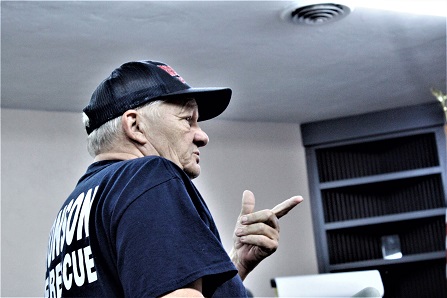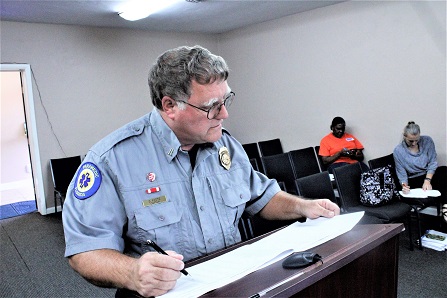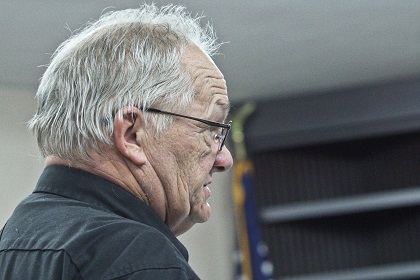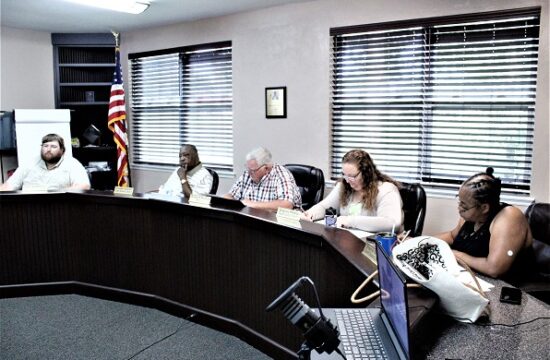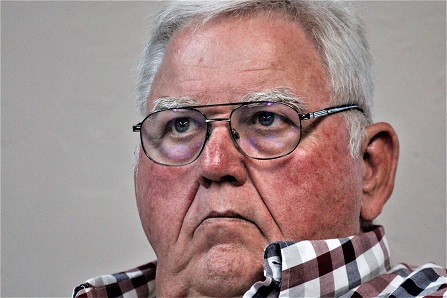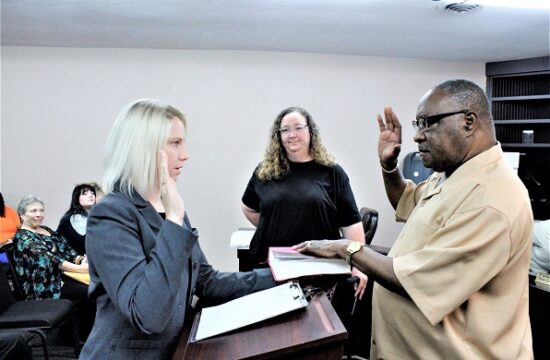By Terry Witt – Spotlight Senior Reporter
Former Bronson Town Councilman Berlon Weeks filed an amended lawsuit in Levy County Circuit Court Wednesday to provide additional proof requested by a judge showing how town council members routinely talk to each other privately about public business through texts, emails, and phone calls.
The lawsuit was filed more than a year ago seeking to overturn the Bronson Town Council’s decision on Sept. 23, 2020, removing Weeks from office by recognizing a resignation that Weeks said he never made and refusing to let him speak or vote in the meeting where the action was taken.
Weeks said the Florida Sunshine Law, which requires members of local government elected and advisory boards to conduct their government business in advertised public meetings has been raised by him as an issue in the lawsuit, but the judge wanted to see more evidence of Sunshine Law violations before the litigation could proceed.
“The judge kept asking for more information on Sunshine Law violations so we finally got what he needed,” Weeks said. “The town was trying to kick out the whole case on that issue. The judge rejected their motion to dismiss and said if we want to go forward with this case then we had to provide more proof of Sunshine Law violations, so we handed that in today,” Weeks said.
“All I ever wanted was to do my term of office like I was elected by the people to do and that document (today’s amended lawsuit) states exactly where we’re at,” Weeks said.
Weeks’ attorney Blake Fugate filed the lawsuit against then-Mayor Beatrice Roberts and Town Council members Jason Hunt, Robert Partin, and Aaron Edmondson, as well as Town Attorney Steven Warm and the Town of Bronson, alleging the council had no legal authority to remove Weeks from an elective office and violated his constitutional right to due process by removing him against his will.
One of the requirements of the Sunshine Law is that local governments must give the public adequate advance notice that a public meeting is about to take place, but the lawsuit points out the town council barely gave any public notice of its intent to meet on Sept. 23 and or to remove Weeks from his elected office.
“Notice went out to the local media on the day of the meeting at approximately 2 p.m. as opposed to the normal meeting notice lead time of weeks,” the lawsuit said.
Emergency meetings or special meetings can have a shorter lead time for notifying the public, depending on the urgency of the matter, but the lawsuit notes that after removing Weeks from office, council members waited months before filling his vacant seat, an indication there was no urgency to stage the Sept. 23 meeting on short notice.
The lawsuit adds that private phone calls between Beatrice Roberts, Jason Hunt, Robert Partin and Aaron Edmondson regarding public business that was likely to come before the council for decisions occurred on Sept. 4, 2019, Sept. 9, 2019, Sept. 10, 2019, Sept. 18, 2019, Oct. 3, 2019, Oct. 4, 2019, Oct. 6, 2019, Oct. 7, 2019, Oct. 16, 2019, Oct. 7, 2019, Oct. 16, 2019, Oct. 22, 2019, Oct. 23, 2019, Oct. 25, 2019, Nov. 5, 2019, Nov. 6, 2019, Nov. 13, 2019, Feb. 4, 2020, March 19, 2020, April 1, 2020, April 15, 2020, July 14, 2020, Aug. 10, 2020, Sept. 10, 2020, Sept. 14, 2020, Sept. 15, 2020, Sept. 23, 2020, Sept. 24, 2020, Sept. 25, 2020, Sept. 28, 2020, and Nov. 23, 2020.
Roberts, Hunt, Partin, and Edmondson also participated in private (“text votes) or other private communications on Feb. 4, 2020, and June 4, 2020, regarding matters that should have been discussed in noticed public meetings, the suit added.
Weeks told Warm on the morning of Sept. 24, 2020, the day after the meeting where he was removed from office, that he hadn’t resigned.
The lawsuit said Florida law doesn’t recognize the resignation of an elected official as being legal and binding unless it is clear and free from any question as to what the elected official intended to do. In Weeks’ case, the lawsuit said his statements were unclear.
In the Sept. 23, 2020 council meeting, three council members, Roberts, Partin, and Edmondson – voted to accept Weeks’ resignation. Hunt voted against the motion.
The alleged resignation occurred earlier at a Sept. 15, 2020 council meeting.
The lawsuit says Weeks, after becoming frustrated by unsubstantiated
accusations made by other council members at the Sept. 15 meeting, made three separate statements about possibly resigning or not running for office when his term expired.
Approximately 34 minutes and 50 seconds into the meeting, he stated, “After tonight, boss, I’ll resign.”
Approximately 39 minutes and 20 seconds into the meeting, he said, “You’ll have my resignation.”
Approximately 37 minutes and 25 seconds into the meeting, he said, “I come up again, I won’t run again.”
Fugate said the three statements aren’t clear as to Weeks’ intent, and if the resignation is to be viewed as legal, it must be clear and unambiguous.
“A qualified, ambiguous or conditional resignation is the same as no resignation at all, and to be valid, a resignation must be unqualified, unequivocal and immediate,” Fugate said in the lawsuit, quoting from a 1981 court case, Smith vs. Brantley.
Fugate also used the lawsuit to quote from a statement by Warm, the town attorney, as to why he suggested the town council vote on Weeks’ alleged resignation on Sept. 23, since it wasn’t clear to Warm that he had resigned.
In Warm’s own words, “if there were total clarity to Berlon’s pronouncement, I would not have encouraged the council to reach consensus,” the suit said.
The removal of Weeks led to the appointment of Tyler Voorhees to fill his seat. Voorhees was elected without opposition last year.
The lawsuit said Weeks remains a councilman, but without a place on the board, he was elected to serve on.
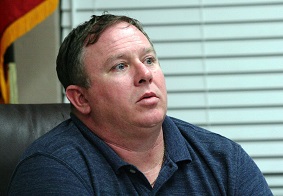
—————————–
Enterprise Reporting by Terry Witt March 17, 2022; Posted March 17, 2022



